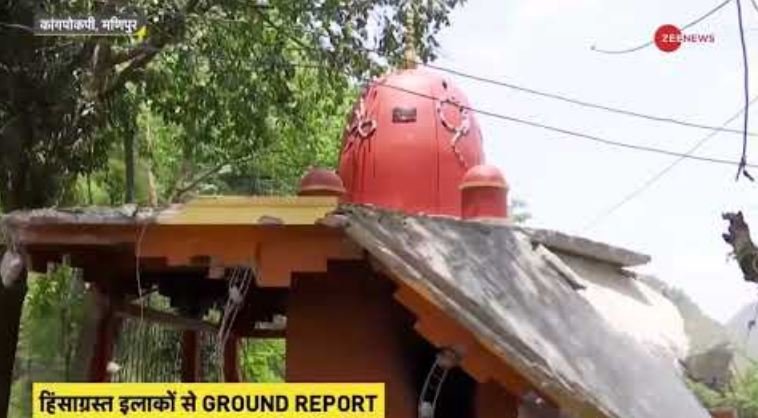New Delhi/July 14, 2023 (SPN) | India has strongly criticized the recent resolution passed by the European Parliament concerning the human rights situation in Manipur, asserting that the state’s affairs are entirely internal.
The resolution, which highlighted the clashes in Manipur, was deemed by the Indian foreign ministry as a reflection of a “colonial mindset” and deemed “unacceptable.”
The EU Parliament highlighted that the ongoing violence has resulted in a significant loss of life and displacement of thousands of people, with numerous houses and churches being destroyed.
According to the EU Parliament, the clashes have claimed the lives of at least 120 individuals, displaced 50,000 people, and led to the destruction of over 1,700 houses and 250 churches. These alarming figures prompted the EU Parliament to adopt a resolution addressing the situation in Manipur.
The Church leaders and Human Rights Activists have lobbied the European Parliamentarian to color the Manipur crisis on religious grounds (Kuki Christians versus Meitei Hindus) and they have hidden the narco-terrorism, poppy cultivations, illegal infiltration from Myanmar, and the encroachment of reserve forest areas by the Kukis in Manipur.
These European leaders don’t have any idea how many Hindu Temples have been destroyed by the Kukis, how many Meitei Christian Churches have been torched by Kuki Christians, and how many Meitei are displaced due to ethnic cleansing by the Kukis. Out of the 50,000 displaced people, more than 80 percent are Meitei communities.
Their lies have lost the credibility of the European Parliament in front of the World now.
In response to the European Parliament’s resolution, India’s foreign ministry spokesperson, Arindam Bagchi, declared, “We have seen that the European Parliament held a discussion on developments in Manipur and adopted a so-called Urgency Resolution. Such interference in India’s internal affairs is unacceptable and reflects a colonial mindset.”
He further suggested that the European Parliament should focus on its own internal matters rather than involving itself in the affairs of other countries.
This resolution coincided with Prime Minister Narendra Modi’s two-day visit to France, where he is the esteemed Guest of Honour at the Bastille Day Parade.
While the European Parliament engaged in the debate on Manipur, India had already conveyed its position to the EU parliamentarians through Foreign Secretary Vinay Kwatra, emphasizing that the situation in Manipur is an “absolutely” internal matter.
The resolution, titled “India, the situation in Manipur,” was passed in Strasbourg, France. It specifically referred to the violence in Manipur and strongly urged the Indian authorities to take immediate measures to cease the ongoing ethnic and religious clashes, ensuring the protection of religious minorities, particularly Manipur’s Christian community.
India firmly maintains that the authorities at all levels, including the judiciary, are actively addressing the situation in Manipur and implementing measures to restore peace, harmony, and the rule of law.
The government also stresses the need for an inclusive dialogue involving civil society and the affected communities. However, it denounces external interference in its internal affairs, emphasizing that Manipur’s affairs should be handled domestically without external intervention.
The resolution additionally called for an independent investigation into the violence and the repeal of the Armed Forces Special Powers Act (AFSPA), which has been a matter of debate and contention in the region. The AFSPA grants the military special powers in insurgency-affected areas, but it has drawn criticism from various human rights organizations.
India’s stance asserts that it has the mechanisms in place to address the situation effectively and that the European Parliament should respect its sovereignty and refrain from involvement in its internal matters. This diplomatic disagreement adds a layer of complexity to the existing bilateral relations between India and the European Union.
India’s foreign ministry spokesperson urged the European Parliament to utilize its time more productively by focusing on internal issues rather than engaging in matters beyond its purview.
Signpost News is an Imphal-based media house that focuses on delivering news and views from Northeast India and beyond.

